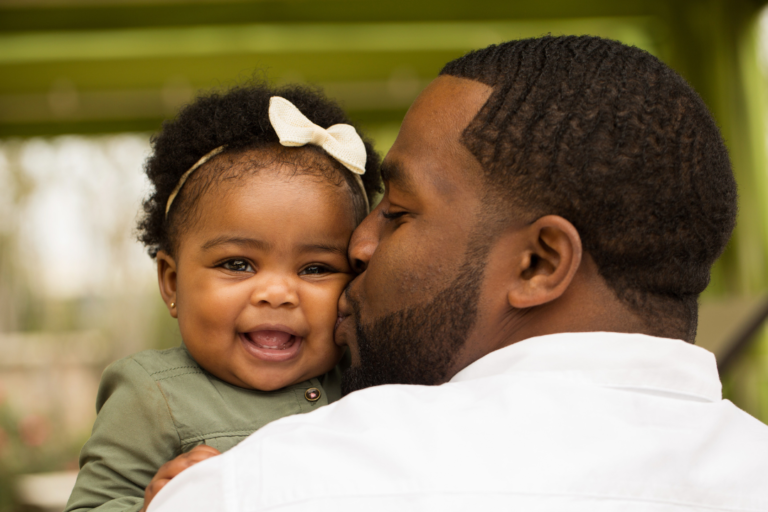As parents, we all want to optimize our baby’s development. Research has shown us that what we do to enhance development in the early days, holds the key to raising a happy, well-adjusted child who succeeds in the classroom, on the sports field, stage and beyond.
Right now, you’re probably sleep deprived and navigating the dozens of changes that come with a new baby. The good news is that you don’t have to feel added pressure or guilt for not knowing exactly how to help your child reach their full potential. Use these insights and tips to help you make optimizing your baby’s development part of your everyday routine.
The impact of the early days
By the time your baby is born, they’ve come a long way from the cluster of cells that has grown in a fertile environment for 9 months. What you ate, drank and felt in your pregnancy will contribute to the potential of this little life. But is it the next three years that will have the most significant impact on your child’s physical, mental and emotional aptitudes in life.
The key to optimizing your baby’s development
The question of what determines developmental outcomes more – nature or nurture – is a hot topic. Some believe that a baby’s genetic potential has the biggest influence on the way they develop. In other words, their genes dictate whether your baby will develop sporting or academic success.
On the other hand, nurture theories suggest that a baby’s genes has less of an effect on their potential than the family they are born into and the quality of the activities and interactions they have. In short, babies who have enriched environments will have enhanced development.
But current research shows us that the quality of daily interactions is even more important than genes or enriched environments. What does that mean? It means that your baby could have the genetic potential for academic brilliance and attend an enriching daycare program but if their early interactions are not nurturing, they will never reach their full potential.
Emotional connection is vital for brain development
When your baby enters the world, they literally have millions of brain cells or neurons. These neurons are largely unconnected and in order to become useful, these neurons need to be stimulated to form connections to other brain cells. For instance, brain cells that are encoded to develop language skills need to be exposed to language in order to achieve their purpose.
But this doesn’t mean sitting a baby in front of a video that has pictures of objects, playing Mozart or labeling objects with words will result in language connections forming. In reality, language connections in the brain are best developed in an emotional context.
For example, when a mom and baby interact with a dog, mommy saying ‘dog’, helping them pet the animal and laughing with mom when the dog licks their face, a baby learns the concept of ‘dog’ in an emotional context. When emotional connection is present, language develops rapidly.
This is one of the reasons that TV and videos are not beneficial for babies’ development. Babies simply don’t benefit from the non-emotional stimulation that TV offers. In fact, research has shown that more goes on in our minds when we sleep than when we vacantly stare at a TV program. If you are going to use the medium of television to entertain toddlers and teach your baby concepts, do it by sitting with them and discussing the content of the show. If the show is so mindless that there is no content to discuss, don’t subject your baby to it.
Opportunities for enhancing development
Understanding the importance of emotional context in learning will help you enhance all areas of your baby’s development.
Physical development
At birth, babies are curled up after spending 9 months in a confined space. Their first task is to uncurl themselves and use their back muscles to hold up their necks and heads. By five to six months old, your baby begins to roll because their tummy muscles will have strengthened sufficiently allow for rolling.
As your baby speeds towards the six-month mark, you will be amazed at how well they put the pieces together for themselves just by being given the opportunities to develop their little muscles to engage with the world.
In the first six months encourage your baby’s physical development by:
- Giving them lots of opportunities to play on their back and tummy
- If your little one doesn’t enjoy being on their tummy, place them facing you on your tummy so that they are encouraged to lift their head and look at you
- Putting your baby under a mobile is excellent to encourage arms, legs and tummy muscles
- Avoid leaving your baby in a car seat unless you are traveling in the car
This, in a nutshell, is how your baby develops their first few critical physical milestones. Soon after six months, most babies are having such fun exploring their world that they are ready to use those strong back and tummy muscles to sit.
Milestones are also only guidelines so don’t be concerned if your baby is a little slower than another baby – by 18 months, most healthy babies are on a par physically.
Mental development
Although newborns are asleep most of the time, mentally they begin to form the connections such as recognition, memory, and language right from day one. Your baby’s alertness and interest in the world plays a big part in the development of intelligence.
By six weeks, your baby will be able to stay awake for longer periods happily. They will start to smile and interact with you.
How much you speak to your baby will have a direct bearing on their intelligence later, too. Talk about what you are doing or what you can see – your baby will benefit just from hearing you talk.
Playing games such as peek-a-boo is also great for developing your little one’s memory and the idea that something exists even when it’s out of sight. Both memory and object permanence begin to develop in earnest in the second six months of life, based on the little games and interactions you have with your baby early on.
Balance is the name of the game
Activities like some of those mentioned here are important for enhancing your baby’s physical and mental development. But it is also vitally important not to lose sight of the more subtle areas of development and the balance that we need to strike when stimulating our babies.
Overstimulation is a trap many parents fall into when faced with the pressure of optimising their baby’s development. Over-stimulated baby tends to be fussier and may have difficulty falling asleep.
Frequently, overscheduled, hyper parented children battle to play independently later and are more needy children in general. To avoid over stimulating your baby, make sure you balance all the wonderful stimulation activities with calming routines, such as reading books quietly, regular sleep times and also times when you just leave your baby to potter around exploring their environment within safe boundaries.
Emotional development
Knowing that EQ (emotional intelligence) has a greater bearing on success in life than IQ, we need to ensure that emotional milestones are also a focus.
The first major emotional milestone of infancy is to be able to remain calm and begin to regulate the cycles of sleep and hunger (Greenspan). Initially, babies need to feed regularly and this disturbs their sleep. Within a few weeks, you will begin to be able to read your baby’s signals and guide them into a flexible routine. This helps your little one to start to regulate the basic functions of hunger and sleep. Sleep is important because a well-rested baby benefits more from enriching stimulation.
Between two and seven months, your baby will have attained the second emotional milestone: the important task of attaching significance to the primary caregiver. This attachment is very important as it forms the basis for trust and relationships in childhood and later on in life.
Attachment is not based on an ideal birth situation or idyllic first three months. Babies who are separated from their mothers at birth and those who are adopted later still achieve wonderful bonding and attachment if nurtured sensitively. The key factor in attachment is how you read your baby’s signals and the way in which you respond to meet their physical and emotional needs.
A note for moms
The responsibility of mothering overwhelms all of us at times. There are days when just feeding our babies feels like an insurmountable task, never mind ensuring their optimal development. In these moments it’s important to remember that our best moments as parents are those when we are human – not perfect. Try to implement some of these tips as part of your every day and know that you are doing your best – even on the ‘bad’ days.
Get a play idea for everyday of your baby’s first year when you download Parent Sense. It’s the all-in-one baby app that takes the guesswork out of optimizing your baby’s development.




